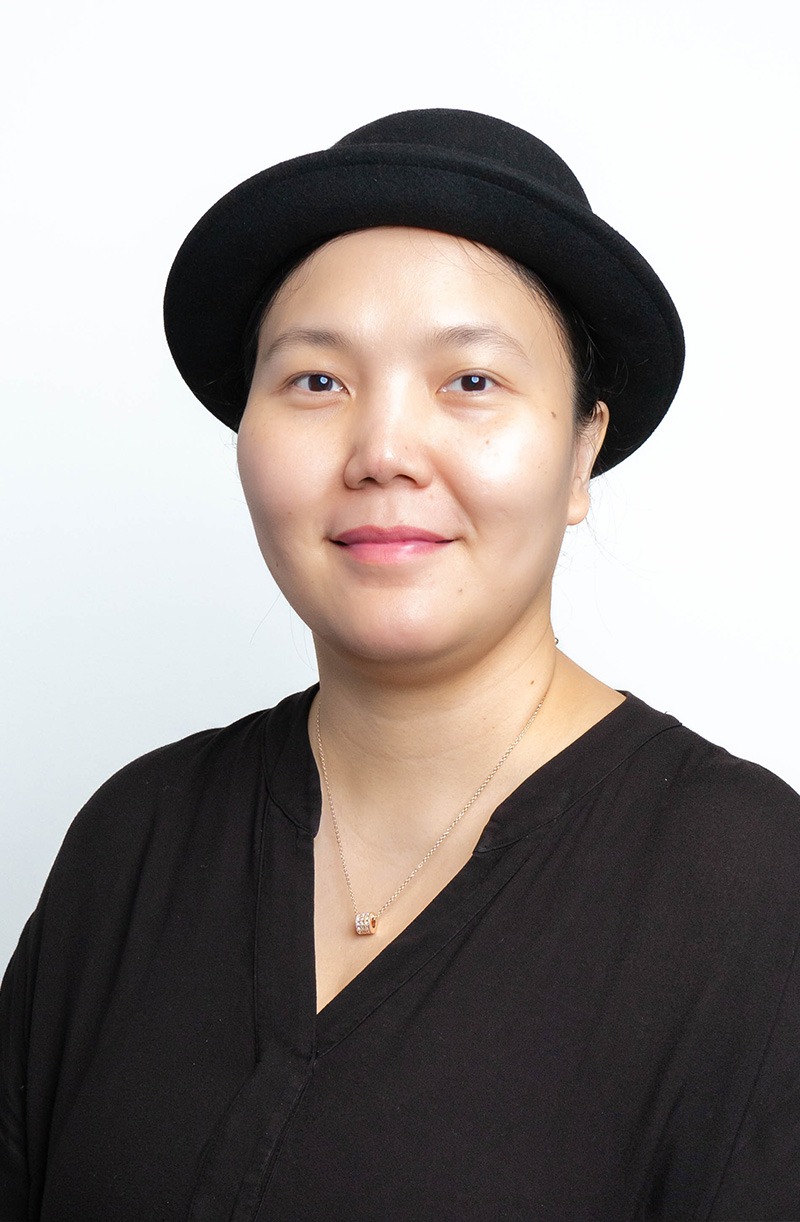
How to Study Effectively – Our Top Tips
Studying seems simple. Sit down, open a book or the computer and get started. For some, it can be difficult to prioritize tasks, to know how long to study, which part of the curriculum or notes to study from or create a study plan that prevents long hours of cramming the night before a big test or project is due. Read on for the top 10 tips in order to master study skills and be an effective learner!
Managing Time
It’s easy to lose track of time or believe that there isn’t enough time, which makes time management an important skill. Time management is arguably the biggest key to studying effectively, whether that be time management during a study session or throughout a semester. Learning takes time, and placing structure around study time helps keep learning on track.
Timers

To allow better focus and remind ourselves to take a break, it is recommended to set timers for better accountability during the set study time. Timers can help students avoid mindlessly scrolling the internet while still allowing them to focus since the flip side of the timer allows the student to unfocus and take a mental break. The Pomodoro Technique is a great example of taking 25 minutes to study and then a five-minute brain break. The Pomodoro Technique works with small increments of time but can be altered for anyone just as long as there is appropriate study time mixed with brain breaks. Utilizing timers or timing techniques can especially make a difference for people who may be neurodivergent. Neurodivergent learners may be diagnosed with ADHD or autism. Focus is challenging for anybody to accomplish, but it must be exercised for neurodivergent people.
Brain breaks are a great time to take a walk and to take a break from looking at a computer screen. Sometimes taking brain breaks seems counterproductive, however, it is a great tool for self-regulation to ensure you are getting the studying hours you want without burning out. Florida Atlantic University did a study on children from two to four years old and found that their self-regulation skills increased during a timed activity. Timers can be an effective way to make sure that you are focused when you study because you know that there is a break in a certain amount of time!
Schedule
While timers are great for organizing one study session, many students know that it takes more than one study session to be successful. How do you eat a giant elephant? One bite at a time. This classic idiom isn’t really about eating an elephant, but more about undertaking an overwhelming task. Studying can be difficult for many, and creating designated time within a weekly schedule can help students organize their time. This allows you to study while simultaneously maintaining a social life and spending time with your family.
The biggest thing to remember about scheduling is that there is no right way to schedule. Your schedule is unique to you. Some may find that studying for an hour or two right after a class increases their absorption of information. Others may find they need to take a break and exercise, and then spend a couple of hours studying. This all comes back to understanding when you are most productive throughout the day.
Productivity Windows
Productivity windows are unique to each person. Some wake up ready to be productive. However, some people are self-described night owls finding productivity and focus in the late hours of the night. It may take some time to understand your personal productivity windows, or you may know right away. Keeping a diary and recording your daily habits will help you understand when you are most productive. This helps you to create a unique schedule that might work for you.
For some, productivity windows can vary. For example, neurodivergent learners can have varying productivity windows. Neurodivergents may find it easier to turn on hyperfocus at times, but on other days they may find they cannot focus at all. Neurodivergent learners will have to work out a schedule that works for them, which means it may not be stagnant throughout the semester.
Ultimately, understanding when you feel productive and when you don’t, will help you observe how to create the perfect conditions within your schedule for optimal study time.
Study Environment and Conditions
Studying in an environment built to learn with the right conditions supports other time management skills in creating effective study sessions for yourself or your kids. Just like time management, there are layers to creating the environment and conditions needed to be productive when studying. Following these tips will guide you to focus and success.
Health
A big part of focusing revolves around our ability to think. Our brains are complex, yet when it comes to focusing, they are simple. Making sure that you prioritize your health and practice good habits will guarantee that your study sessions are productive.
Getting enough sleep, eating nutritious meals, and exercising regularly are the simple steps that will help create conditions for our brains to think and process information. Physical and mental well-being are crucial for maintaining focus and concentration.
Taking time off when you’re physically or mentally unwell is a fantastic approach to controlling yourself and maintaining stress-free learning conditions. At times, sacrificing sleep or health to be successful seems like the right thing to do. However, our brains do not remember, think or work well while sick. That goes for your mental health as well. Prioritizing health is an investment in your learning that goes a long way.
Creating a Conducive Study Environment

Creating a conducive study environment is a straightforward application. Find a quiet and well-lit space where you can concentrate without distractions. Keep your study area organized and free from clutter. Some may discover that a unique study space can be built at home, while others may realize that a quiet library with a reserved room may be best for them.
Checking into local places that provide silence and comfortable chairs could be beneficial. If you are studying virtually, you may need to check if they have wifi. Also, finding out if libraries or other common places in your city may have silent rooms where people can work can help create a conducive study environment for you.
Just like a lot of these tips, creating a conducive environment is unique to you. Some find that noise doesn’t decrease their focus, and sitting in a quiet room can feel uncomfortable. Focus is a skill, which means it can be practiced. It may take time to get used to a quiet room or to sit down and read or listen to a book. Starting small and gradually increasing the amount of time you study might help you build endurance for learning.
Eliminate Distractions
Eliminate distractions to ensure your study environment is productive by clearing your environment and making clear learning objectives while you study. Clear your environment by turning off phone notifications or placing it on “do not disturb” mode. If possible, keep it in another room or use apps that block access to social media during study sessions. Minimize other distractions, such as noise, television, or other potential interruptions.
Establishing a study objective is a useful technique for minimizing distractions during study sessions. By setting specific goals, you can clearly define the objectives of your study session, which will help you stay focused on the subject matter and avoid any irrelevant distractions. When setting study goals, it is important to begin with an “I will be able to..“ statement that outlines the desired outcome by the end of the session, along with an academic output. This output could involve tasks such as solving math problems with a 90% success rate or producing a written piece. For example, a suitable study goal could be: “I will be capable of explaining the scientific method and providing three practical examples”. Incorporating these strategies into your study routine can significantly improve your ability to concentrate and facilitate effective learning.
We often believe that increasing concentration means removing distractions, but it may also mean building a structure that keeps you on track toward your goals.
Accountability
Accountability is the willingness to take responsibility. Taking responsibility and consistently maintaining momentum is even more challenging. Read on to learn how to create positive relationships that encourage accountability.
Academic Discourse
Academic discourse is a specific way to conversate in the classroom about complex topics or arguments. It helps students discuss research articles, academic textbooks, and conference presentations. The discourse can range from peer-to-peer discussion and can include a mix of different types of information or learning contexts.
Academic discourse is important because it is a way for students to practice academic vocabulary in a practical setting with others. This reinforces learning for those speaking about the idea and creates a new way for the information to be heard for the listener.
Academic discourse is a structured conversation discussing analytical, applicable and open-ended learning. This type of discourse is extremely valuable in study groups when learners process topics separately and then come together to solidify their learning. Using this tool during study sessions with others will help you practice the learning, and create a bigger perspective around your learning, while helping your brain remember it even better because you simply spoke about it while using the vocabulary!
Accountability Partners

Seeing how academic discourse can influence learning is a big reason to find a person to study with. Finding a study buddy or a study group helps any student reinforce their learning while creating more context around their learning through others. This goes beyond studying, as some do it for their exercise regime to have gym buddies, to discipline and push each other, here you can do it when studying.
Connecting with peers who understand your unique challenges can also provide support. A study buddy can offer encouragement, strategies, and perspective and help keep you motivated. Study buddies and groups help people who may struggle to keep a consistent schedule. Study sessions with groups that happen weekly can ensure that you reach your goals.
Super Secret Study Tips
If you are still struggling to study after you manage your time, create the perfect study space and conditions, and find others to sharpen your learning with others’ opinions and perspectives, you may be needing the super secret study tips to help your study sessions be effective and beneficial.
Graphic Organizers
Graphic organizers are visual tools that help organize and represent information in a structured and meaningful way. They facilitate comprehension, critical thinking, active engagement, and information organization. They provide a visual and structured approach to studying, making it easier to grasp complex information and improve overall learning outcomes.
When comparing or contrasting materials, graphic organizers such as a venn diagram can help you stay focused. Or use a T-chart to separate information into two groups. T-charts might assist to organize information visually if you’re reading from several sources.

Mind mapping is an open-ended graphic organizer that helps learners create connections between different concepts. Particularly, mind maps can aid neurodivergent learners or language learners. The open-ended aspect of mind maps allows for more pictures and concepts to free flow onto the paper. Mind maps can be a great tool for visual thinkers, allowing them to see the big picture and the relationships between ideas. Graphic organizers can be used in any setting, on paper or created on the computer and can be used to reiterate and review the work!
Technology
Accessing different technology resources really helps increase efficiency, depending on individual needs. Some assistive technology tools include text to speech software that will read web pages or other documents on the computer. These softwares typically have features that highlight the words as they are read, assisting students in keeping pace while reading. Other assistive technology, like as speech recognition, is useful for writing and even taking notes. While watching videos, closed-captions and screen readers can help you learn new words. For example, Notion is a learning app that serves as an all-in-one workspace for note-taking, project management, and collaboration. Quizlet is a great place to create free digital flashcards with various study modes. Pocket is a great resource for saving articles, web pages, and videos to read or watch later. In addition, there are other popular study group collaboration apps, including Google Drive, Slack and Trello which keep your study buddies up to date with the progress.
Conclusion
While it can seem overwhelming to create a study schedule and utilize all the tips in this article, you know yourself best. Pick one or two tips to begin with and add into your routine to increase productivity. If it works, great, but if it doesn’t, think about some other tools within the article that may be the answer to your problem.
Everyone’s learning styles and needs are unique, so it’s important to experiment with different techniques and strategies to find what works best for you! Stay disciplined, be patient with yourself, and celebrate your progress along the way!
Interested to find out more about XCL American Academy and how our teachers support students in their learning? Reach out to our Admissions Team today!
This website uses cookies to improve user experience. By using our website you consent to all cookies in accordance with our Privacy Policy.






